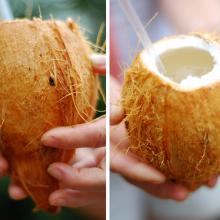Free Trade
In 1994, Congress passed the North American Free Trade Agreement (NAFTA), establishing a template for free trade deals that was neither free nor fair. While North American trade tripled and corporations profited under NAFTA, the costs were borne by manufacturing workers across the U.S. and Mexico, smallholder corn farmers, and our environmental commonwealth. These trade consequences contributed to migration to the U.S.
The dirty secret about free trade agreements is that much of the content has little to do with trade. They serve to maximize corporate profits by pressuring countries to weaken or jettison domestic laws that serve the common good—such as public health, financial, and environmental regulations—to make room for policies that serve corporate interests and economic superpowers. Corporations and other nations can sue for perceived “unfair treatment,” which often costs taxpayers millions or billions of dollars and results in a regulatory chilling effect. With hundreds of U.S. government-approved industry trade advisers at the negotiating table—and few civil society representatives—is this any surprise?

Image via Noor Khamis / Reuters / RNS
A Vatican envoy urged the World Trade Organization to keep promises made to the poor, amid concerns that its tariff-cutting efforts are disproportionately benefiting rich countries. The appeal came as the WTO, a Geneva-based organization that regulates international trade, was holding a four-day meeting ending Dec. 18 in the Kenyan capital.
THE TRANS-PACIFIC Partnership may be the largest free trade agreement you’ve never heard of. Or if you have heard of the TPP, it’s likely due to media reports about efforts by President Obama to fast-track the agreement through legislative hurdles. Still, details of the agreement and its secret negotiation process are sparse. Were it not for released drafts of the document and sub-chapters made available by the whistle-blowing site WikiLeaks, it is likely the general public would know little to nothing of the accord.
Building on the foundation of a 2006 economic partnership agreement adopted to encourage trade between Brunei, Chile, New Zealand, and Singapore, the TPP’s expansion of the agreement grows the number of participant nations to 12, adding Australia, Canada, Japan, Malaysia, Mexico, Peru, Vietnam, and the United States. The combined economic force of these nations would dominate global trade, representing roughly $28 trillion—nearly 40 percent—of the world’s gross domestic product.
But the magnitude of this trading pool isn’t what concerns most critics of the TPP. What is more troubling to labor, environmental, and health groups are the powers seemingly granted to multinational corporations by the agreement and the unilateral easing of climate change laws that serve to restrain industrial nations from disproportionate consumption and pollution.
Expanded corporate powers are nothing new for international trade agreements. The North American Free Trade Agreement (NAFTA) gave rise to a legal quagmire that has allowed Exxon Mobil to challenge Canadian offshore drilling regulations, Dow Chemical to bypass local guidelines to expand pesticide production and waste disposal in Mexico, and Eli Lilly to enforce U.S.-issued drug patents and prices outside the country. Previously, under World Trade Organization treaty guidelines, a corporate entity needed to persuade its host country to challenge the trade laws of another. Corporations could not directly litigate against a sovereign nation or its policies.
How blind commitment to 'free trade' throws working people under the bus.
It's a clear sign something's wrong when talks on "free trade" turn an island paradise into an armed camp.
Hawaii is on lockdown this week while the U.S. tries to hammer out a regional trade agreement that's being called "NAFTA for the Pacific." While some mean this as a compliment, Hawaii's faith and labor leaders are lifting their voices against an agreement they believe will put profits for banks and corporations above workers' rights, indigenous culture, and local communities. Those leaders are drawing on the Pacific region's indigenous "Coconut Theology" to provide an alternative vision of the common good.
"Coconut Theology came out of our contextual understanding of the Gospel in the Pacific," said Rev. Piula Alailima, pastor of Wesley Methodist Church in Honolulu and a core leader in the community organizing group Faith Action for Community Equity (FACE). "When we break the body of the coconut and partake of the juice, it's a symbol of the body and blood of Christ, of sacrifice, of community and the common good."
Danny Duncan Collum got it right in his article on media and academic bias in the service of free trade and globalization ("One Side to Every Story," May 2007).
Understanding the perils and promise of international trade. Includes Web Exclusive: List of additional readings and resources.




